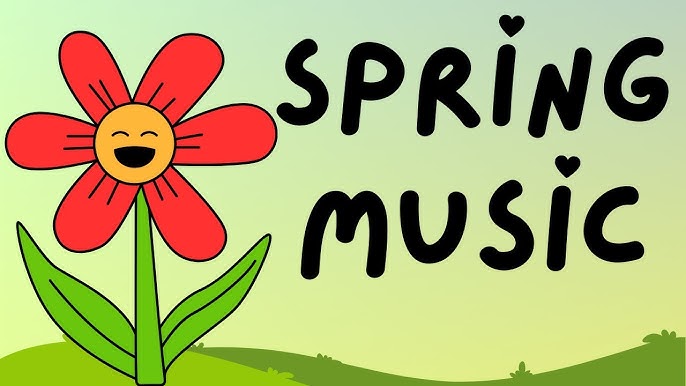The music streaming industry stands at a fascinating crossroads. As we advance deeper into the digital age, the way we discover, consume, and share music is undergoing a profound transformation. What started as simple on-demand music access has evolved into a complex ecosystem of artificial intelligence, social interaction, and cutting-edge audio technologies. Platforms like spring-music.com are not just keeping pace with these changes—they're actively shaping the future of how we experience music. This comprehensive exploration delves into the revolutionary trends that will define the next decade of music streaming, offering insights into technologies and features that are already beginning to reshape our auditory landscape.
AI-Powered Personalization: Beyond Simple Recommendations
Artificial intelligence in music streaming has transcended basic collaborative filtering algorithms. Modern AI systems now analyze multiple data points: listening history, time of day, activity patterns, emotional state indicators, and even biometric data from connected devices. These sophisticated systems create dynamic user profiles that adapt in real-time. For instance, an AI might recognize that you prefer upbeat electronic music during morning workouts but gravitate toward ambient soundscapes during late-night work sessions. Advanced platforms are beginning to integrate contextual awareness, using calendar data, weather information, and location services to predict musical preferences with unprecedented accuracy. The future promises AI that doesn't just recommend music—it curates emotional experiences, creating soundtracks for your life that evolve with your needs and circumstances.
Social Listening: Music as a Shared Experience
The future of music streaming is inherently social. While solitary listening remains important, platforms are increasingly recognizing that music has always been a communal experience. Innovative features like synchronized listening parties, where friends can listen together regardless of physical distance, are becoming mainstream. Real-time collaborative playlists allow multiple users to contribute songs simultaneously, creating dynamic, ever-evolving musical collections. Social discovery mechanisms leverage your network's listening habits to surface new music, moving beyond algorithmic recommendations to human-curated suggestions from people whose taste you trust. Voice notes and song reactions enable deeper musical conversations, transforming passive consumption into active community engagement. These social features acknowledge that music discovery often happens through human connection, and the most memorable musical experiences are frequently shared ones.
Immersive Audio Technologies: Beyond Stereo
The technical foundations of music streaming are evolving rapidly. Spatial audio, 3D soundscapes, and binaural recording techniques are creating unprecedented levels of immersion. High-resolution audio streaming, once a niche market, is becoming accessible to mainstream audiences as internet infrastructure improves and storage costs decrease. Adaptive bitrate streaming ensures optimal quality regardless of network conditions, while emerging technologies like object-based audio allow listeners to customize their acoustic experience. Virtual and augmented reality integrations are beginning to blur the lines between listening to music and experiencing it viscerally. Interactive audio experiences, where listeners can isolate instruments, adjust mixing levels, or even step inside virtual recording studios, represent the next frontier of musical engagement. These technologies transform passive listening into active exploration, giving audiences unprecedented control over their auditory experience.
Creator Economy and Direct Artist Support
The relationship between artists and audiences is being revolutionized through streaming platforms. Direct fan funding, micropayments for individual tracks, and creator subscription models are providing new revenue streams that bypass traditional gatekeepers. Live streaming performances, virtual concerts, and behind-the-scenes content create deeper connections between artists and their audiences. Blockchain technology and NFTs are beginning to enable new forms of music ownership and exclusivity, though their long-term impact remains to be fully realized. Educational content, production tutorials, and collaborative creation tools democratize music production, allowing aspiring musicians to learn directly from established artists. These developments are creating a more sustainable and diverse musical ecosystem where independent artists can thrive without traditional label support.
The Podcast and Audio Content Integration
Music streaming platforms are evolving into comprehensive audio ecosystems. Podcasts, audiobooks, meditation content, and educational audio are being seamlessly integrated alongside music offerings. Smart content mixing allows for dynamic transitions between different audio types, creating cohesive listening experiences that adapt to user preferences and activities. Voice-controlled interfaces and AI assistants are making content discovery more intuitive and conversational. Multi-format content creation tools enable musicians to expand their reach through various audio mediums, from traditional albums to podcast series to interactive audio experiences. This diversification acknowledges that modern listeners consume audio content in multiple formats and contexts, expecting platforms to serve as comprehensive audio destinations rather than single-purpose music services.
Privacy, Ethics, and User Control
As streaming platforms become more sophisticated in their data collection and analysis, questions of privacy and user control become increasingly important. Transparent data usage policies, granular privacy controls, and ethical AI practices are becoming competitive advantages. Users are demanding more control over their recommendations, the ability to understand why certain content is suggested, and options to fine-tune their algorithmic experience. Platforms that prioritize user agency while maintaining sophisticated personalization will likely lead the next wave of innovation. The future belongs to services that can balance powerful AI capabilities with respect for user privacy and autonomy, creating trust through transparency and control.
The future of music streaming is not just about technology—it's about reimagining the relationship between listeners, artists, and music itself. As platforms like spring-music.com continue to innovate, we're moving toward a more connected, immersive, and personalized musical future that honors both individual preferences and the communal nature of musical experience. The next decade promises to be the most exciting period in the history of recorded music consumption.
